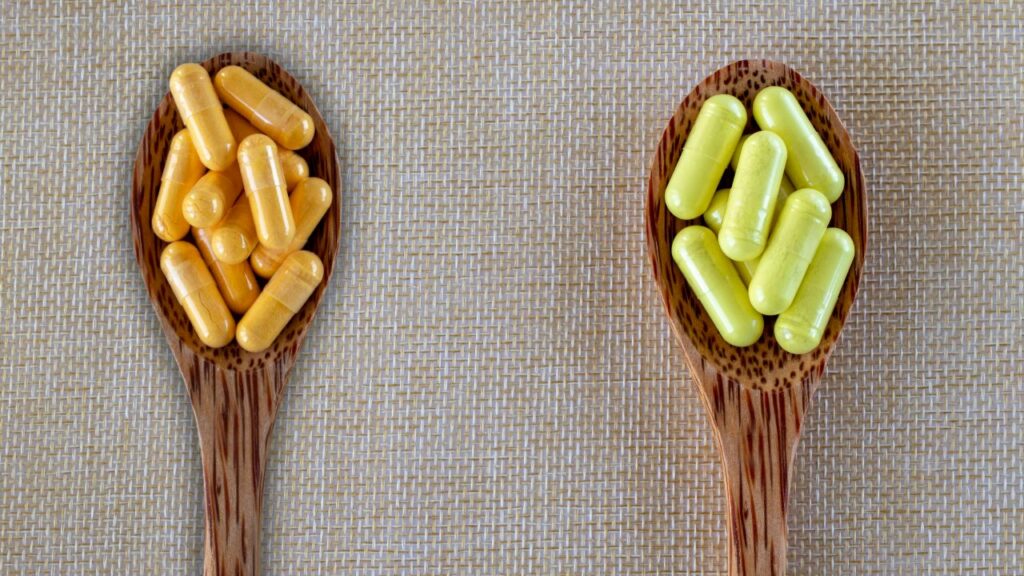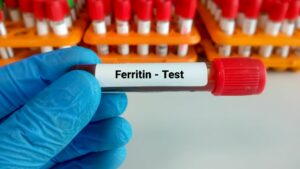Today, we have access to all kinds of supplements, so there really is no excuse for not having the recommended daily allowance of any mineral, vitamin, or nutrient that our bodies need.
However, medical professionals will advise you that different supplements may interact with each other, with some interacting positively, while others may affect you negatively.
During the COVID-19 pandemic, two of the most talked about nutrients are quercetin and zinc. These two minerals have shown promise in minimizing the effects of a cytokine storm, a condition that occurs during severe cases of COVID-19 in mice.
However, what may occur in mice may be the reverse for humans, which begs the question, “Can I take quercetin and zinc together?”.
Here, we will discuss what quercetin and zinc are, what they do for the body, and how they can affect the human body when they are taken together.
Table of Contents
Quercetin
What is Quercetin?
Quercetin is a flavonoid that is found in certain plants. It is known as a bioactive antioxidant that helps prevent cellular damage caused by free radicals.
It is also known to help prevent tissue damage due to toxins. Aside from these benefits, quercetin can also prevent various conditions such as Alzheimer’s disease, cardiovascular diseases, kidney-related disorders, and some types of cancer.
Where Can I Get Quercetin?
Quercetin can be found in numerous plant sources, especially fruits and vegetables. Some of the most abundant quercetin sources that you can find include:
- Green and black tea
- Asparagus
- Kale
- Moringa
- Red apples
- Cherries
- Red grapes
- Berries
- Tomatoes
- Onions
- Shallots
- Broccoli
- GIngko biloba
- Etc.
Typical dosages of quercetin should be around 500 to 1,000 milligrams per day. However, the average person only gets about 10 to 100 milligrams of quercetin from their regular diet, especially if they don’t eat a lot of the above-mentioned foods.
In these cases, supplements may be necessary to support your daily quercetin requirements. However, some doctors recommend that you only take supplements in 12-week cycles to prevent any negative side effects.
Zinc
What is Zinc?
Zinc is a trace mineral that the body needs for multiple functions. It mainly catalyzes regulating cell growth and repair and keeps the immune system strong.
Zinc has also been shown to provide other benefits, such as speeding up the healing of wounds, treating diarrhea, improving brain health, improving taste and smell, and preventing macular degeneration and other chronic diseases.
Where Can I Get Zinc?
The recommended dosage of zinc is anywhere from 2 to 13 milligrams per day. The dosage will depend on a person’s gender and age. Women will also have higher zinc needs if they are lactating or are pregnant.
Zinc can be found in various food sources. Oysters, crabs, and beef are very rich in this particular nutrient. Zin-fortified cereals and other products are also available on the market.
Other foods that you can get zinc from include:
- Lentils
- Shrimp
- Pork
- Pumpkin seeds
- Greek yogurt
- Milk
- Brown rice
- Eggs
- Salmon
- Blueberries
- Broccoli
- Kidney beans
- Sardines
- Etc.
Like quercetin, you can also get zinc from supplements if you do not have access to particularly zinc-rich foods.
Can I Take Quercetin and Zinc Together?
No evidence shows that taking quercetin and zinc together, either naturally or through supplements, has any negative effects. In fact, taking these two together will boost their beneficial properties.
This is because quercetin is a natural ionophore for zinc. An ionophore pretty much serves as a key that allows a nutrient, like zinc, to enter the cell walls, making them more effective in fighting viruses and other positive effects.
Quercetin and zinc are antioxidants and very good at fighting viruses like COVID-19. In fact, quercetin and zinc can boost each other’s immunity-boosting capabilities.
As such, while quercetin and zinc have their own individual benefits, taking them together will have the effects listed below.
Boost the Immune System
When taking quercetin and zinc together, you will have a boost in immunity, especially as the quercetin helps the zinc enter the cell walls where viruses typically replicate.
A stronger immune system means that you will be able to fight off infections better. Research has also shown that quercetin and zinc can help recovery from conditions like the common cold by as much as three days.
Those who have taken quercetin and zinc combined with Vitamin D can also help alleviate the more severe complications caused by diseases such as COVID-19.
Reduce Inflammation
Inflammation is one of the main culprits for chronic conditions such as cardiovascular diseases, strokes, and diabetes. Quercetin and zinc, when taken together, can help minimize inflammation.
Reducing inflammation will not only lessen the risk of the above-mentioned conditions, but it can also greatly improve your length and quality of life.
Taking quercetin along with zinc has a great beneficial effect as zinc ionophores can target the cell’s mitochondria, its most important component so that it can ensure regular function and repair capabilities.
Helps Fight Cancer
Research has shown that taking quercetin and zinc together can help prevent certain types of cancers. Some studies have been done on zinc ionophore’s anti-cancer and anti-metastasis properties on bladder cancer cells.
In addition, quercetin and zinc can also help prevent cases of prostate cancer in men as, individually, they both help in promoting prostate health.
As cancer develops from within the cells, getting zinc into them through combining it with quercetin can help eradicate tumours and prevent them from spreading. As such, the cancer-fighting properties of quercetin and zinc are maximized if they are combined.
Other Benefits
Those who have lost their sense of taste and smell after infection with COVID-19 have had some or all senses returned after quercetin and zinc supplementation.
In general, a combination of these two nutrients has also been shown to support healthy sinus function.
Quercetin and zinc can also help promote good eye health, helping prevent the onset of vision loss or impairment caused by general degradation of the retina.
Side Effects of Quercetin and Zinc
While quercetin and zinc provide some very good benefits to the body, it is also possible for them to have some side effects that can cause harm.
Some of the side effects of quercetin and zinc will occur if an excessive amount is found in the body. In the case of quercetin, dosages of over 1,000 milligrams long-term can cause kidney damage.
Pregnant or breastfeeding women are also recommended not to take quercetin supplements and get this antioxidant from natural sources instead.
It may also be possible for certain medications, such as antibiotics, to interact with quercetin negatively.
Excessive and long-term consumption of zinc, on the other hand, can cause anaemia and can even increase the risk of prostate cancer, almost doubling its rate.
Other possible side effects, albeit minor, of quercetin and zinc include headaches, nausea, tingling of the upper and lower limbs, diarrhoea, and vomiting.
As such, it is always recommended to speak with your doctor with regard to your daily recommended dosage of quercetin and zinc, especially if you plan to take supplements to fortify your diet.





